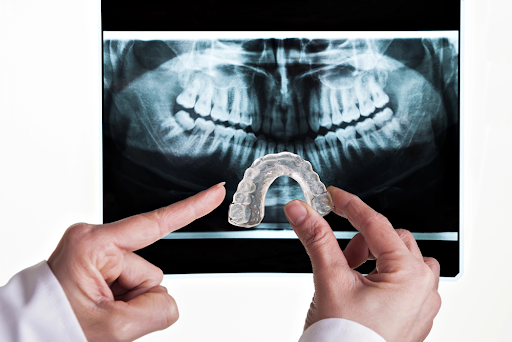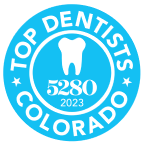 In medical circles, teeth grinding, gnashing, and clenching is known as bruxism. Often, teeth grinding occurs while a person sleeps, though it can happen during the day. Without treatment, bruxism can lead to tooth enamel wear, fracturing, malocclusion, and TMJ disorder. However, a simple oral appliance can stop the damage caused by teeth grinding once and for all, according to Dr. Roy Kaluszshner, a respected dentist in Denver.
In medical circles, teeth grinding, gnashing, and clenching is known as bruxism. Often, teeth grinding occurs while a person sleeps, though it can happen during the day. Without treatment, bruxism can lead to tooth enamel wear, fracturing, malocclusion, and TMJ disorder. However, a simple oral appliance can stop the damage caused by teeth grinding once and for all, according to Dr. Roy Kaluszshner, a respected dentist in Denver.
About Bruxism
Bruxism is both a dental disorder and a neuromuscular issue, which means it involves nerves and muscles. It harms natural teeth, as well as dental work, and can lead to tooth sensitivity. Bruxism can also cause headaches, jaw pain, facial pain, and tinnitus (ringing ears).
Approximately 13% of adults and 20-30% of children suffer from bruxism. The condition is often diagnosed by a dentist during a dental checkup. In some cases, a bedmate or roommate hears a bruxer clenching and grinding their teeth at night. If someone in your household has heard you gnashing your teeth while you sleep, visit one of Metro Dental Care’s dentists in Denver, CO for diagnosis and treatment.
These issues can contribute to the onset of bruxism in children or adults:
- You have been diagnosed with hyperactivity disorder, ADHD, cerebral palsy, mental health disorders, Parkinson’s disease, dementia, sleep disorders, GERD (acid reflux), epilepsy, or night terrors
- You suffer from stress-related health issues like anxiety or depression, or have nervous tension, anger, pain, or frustration; you have an aggressive, rushed, or highly competitive personality; you suffer from PTSD
- You have TMJ disorder (temporomandibular joint dysfunction or malocclusion (upper and lower teeth do not fit together well when your mouth is closed)
- You have a vitamin D deficiency
- You take SSRIs, aripiprazole, atomoxetine, duloxetine, flecainide, ketotifen, methadone, fluoxetine, paroxetine, or venlafaxine
Don’t Make Bruxism Worse!
Drinking alcohol and smoking increase the risk of bruxing episodes by double! High caffeine consumption (6+ cups per day) can increase the risk for and severity of bruxism.
If bruxism is caused by stress, try stress-reduction activities, like seeing a therapist, practicing yoga, regularly exercising, aromatherapy, listening to calming music or sounds, meditation, deep breathing exercises, massage, or journaling.
Cognitive stress management therapy, CBT, can also help reduce stress. CBT involves learning how to change behavioral patterns that increase stress, anxiety, or depression.
The Bruxism Appliance
As a respected dentist in Denver, Dr. Kaluzshner offers an oral appliance known as a sleep guard or night guard. After a comprehensive oral examination and discussion about your experience with bruxism, the dentist may recommend a night guard.
Usually made of acrylic, a nightguard prevents upper and lower teeth from touching when you sleep. The appliance does not prevent bruxism, but it prevents dental and jaw joint damage that results from clenching and grinding your teeth.
If malocclusion is the cause of your bruxism, the dentists in Denver at Metro Dental Care might suggest orthodontics or building up molars that were flattened from teeth grinding. Patients who also suffer from sleep apnea may benefit from a device that opens the airway while you sleep.
Call Your Dentist in Denver Today
If you suspect that you or your child clench and grind teeth while sleeping, or if a dentist diagnoses bruxism, call on the experts at Metro Dental Care for help. We can stop bruxism for good and restore a balanced occlusion to deter the onset of TMJ disorders. Give us a call today at 303-534-2626 or schedule an appointment online.

